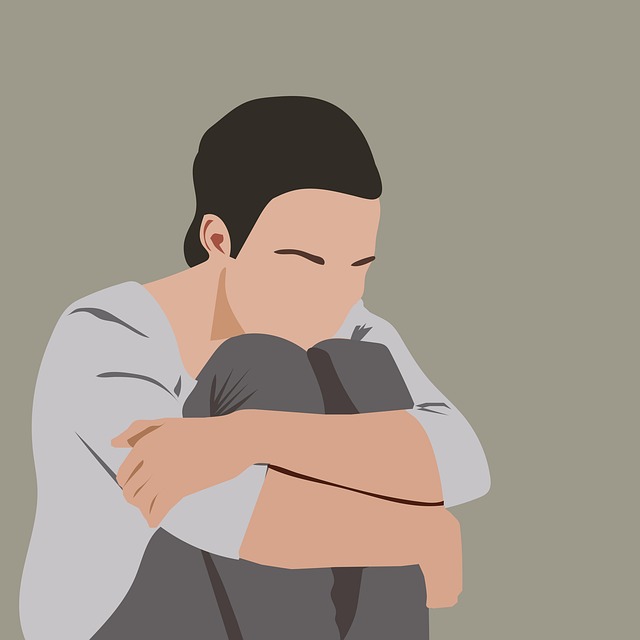Mental Health Crisis Hotlines in Boulder offer 24/7 support for acute emotional distress, connecting individuals with suitable care options. Boulder Depression Therapy Services utilize Mind Over Matter principles to provide specialized depression treatment and advocate for improved mental health policy through tracking call trends. These services foster hope, reduce crises, and enhance community-level mental health resources, addressing Boulder's unique challenges related to depression and stigma. Through open conversations, education, and self-care practices, they empower individuals to recognize warning signs early and seek support before crisis escalation.
“In today’s fast-paced world, mental health crises can strike unexpectedly. Recognizing the growing need for immediate support, this article delves into the vital role of mental health crisis hotline services, focusing on Boulder Depression Therapy as a leading provider. We explore how these hotlines offer confidential assistance, connecting individuals with qualified professionals. From understanding common challenges to building community awareness, this comprehensive guide highlights effective interventions and prevention strategies. Accessing support has never been easier; learn how to reach out and make a difference.”
- Understanding Mental Health Crisis Hotlines
- The Role of Boulder Depression Therapy Services
- Accessing Support: How to Reach the Hotline
- Common Challenges and Effective Interventions
- Building Community Awareness and Prevention Strategies
Understanding Mental Health Crisis Hotlines

Mental Health Crisis Hotlines serve as vital resources for individuals facing acute emotional distress or a mental health crisis. These 24/7 services provide immediate support, ensuring folks experiencing Boulder depression therapy or other severe mood episodes receive timely assistance. Trained professionals offer a safe space to express feelings, assess risks, and connect users with appropriate care options.
Understanding the importance of these hotlines goes beyond individual relief; they play a crucial role in Mental Health Policy Analysis and Advocacy. By tracking call volumes and trends, organizations can lobby for better mental health services, promoting Mind Over Matter principles on a larger scale. Effective crisis hotline support translates to improved access to care, reduced wait times, and more robust community-level mental health resources.
The Role of Boulder Depression Therapy Services

Boulder Depression Therapy Services plays a pivotal role in addressing the mental health crisis by offering specialized support tailored to combat depression and its multifaceted impacts. Beyond mere counseling, they employ evidence-based Mind Over Matter Principles to empower individuals with coping strategies that promote resilience and well-being. These services are particularly crucial in light of the growing recognition of Mental Health Awareness and the need for effective policy analysis and advocacy to address mental health disparities.
By providing accessible resources and expertise, Boulder Depression Therapy Services acts as a lifeline for those grappling with depression, fostering an environment where individuals can find hope and recover their sense of equilibrium. Their commitment to Mental Health Policy Analysis and Advocacy ensures that the needs of the community are not only met but also reflected in broader systemic changes aimed at enhancing mental health support on both local and national levels.
Accessing Support: How to Reach the Hotline

Reaching out for help is a courageous step, and accessing support through crisis hotline services is an accessible and confidential way to connect with trained professionals. If you’re experiencing a mental health crisis or feeling overwhelmed, many hotlines offer 24/7 coverage, ensuring immediate assistance whenever needed. In Boulder, Colorado, individuals struggling with depression can find specialized support from therapy centers that cater to these specific needs.
To connect with the right help, simply dial the hotline number, which is often a local or toll-free line. Trained counselors will guide you through your concerns and provide a safe space to express yourself. They may offer immediate crisis intervention, emotional support, and practical strategies for managing symptoms, such as conflict resolution techniques or stress management workshops, ensuring you have the tools to navigate challenging situations effectively.
Common Challenges and Effective Interventions

Mental health crises often present unique challenges, with depression being a prevalent concern in Boulder. Many individuals struggle to recognize and address their symptoms, leading to prolonged suffering. Common obstacles include stigma associated with mental illness, fear of judgment, and a lack of awareness about available resources. Accessing suitable treatment can be difficult for those facing economic barriers or lacking insurance coverage.
Effective interventions involve a multifaceted approach. Public Awareness Campaigns Development plays a crucial role in destigmatizing mental health issues and encouraging help-seeking behaviors. Stress Management Workshops Organization provides practical tools to cope with daily stressors, fostering resilience. Compassion Cultivation Practices have proven beneficial in promoting empathy and self-compassion, which are essential for maintaining emotional well-being. Additionally, Boulder Depression Therapy offers specialized support tailored to individual needs, ensuring a more comprehensive and accessible system of care.
Building Community Awareness and Prevention Strategies

Community awareness is a cornerstone of preventing mental health crises. By fostering open conversations about mental wellness and normalizing discussions around depression and anxiety, Boulder Depression Therapy can play a pivotal role in reducing stigma. Educational initiatives, public outreach programs, and community events centered on self-care practices can empower individuals to recognize early warning signs and seek support before situations escalate.
Implementing strategies that promote resilience and well-being at the community level is crucial. This includes developing and promoting mental wellness coaching programs that teach individuals effective coping mechanisms, stress management techniques, and healthy habits. These initiatives not only aim to prevent crises but also to build a supportive ecosystem where people feel comfortable discussing their struggles and seeking professional help when needed.
Mental health crisis hotline support services play a pivotal role in assisting individuals during times of distress. As highlighted in this article, understanding these resources and the like of Boulder Depression Therapy Services is essential for fostering community well-being. By increasing awareness and access to such services, we can navigate challenges more effectively and build resilience. Remember that seeking help is a sign of strength, and with the right support, recovery and transformation are achievable.











